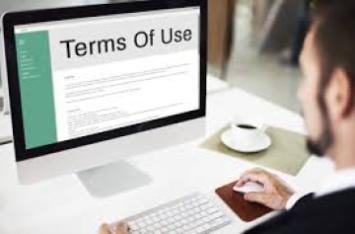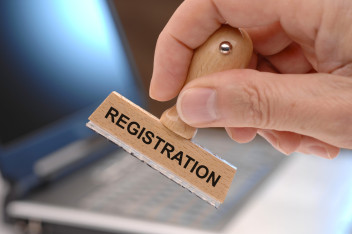Understanding the Responsibilities of Landlords in Maintaining Safe Living Conditions
Ensuring safe and habitable living conditions is a fundamental obligation of landlords. This responsibility encompasses providing tenants with essential services and a living environment free from hazards. Failure to meet these standards can result in legal consequences and significant disputes between landlords and tenants. In this comprehensive article, we explore the crucial areas landlords must focus on, including heating, leak prevention, mold control, and proper communication with tenants.
Legal Obligations of Landlords Regarding Heating
Heating is not just a matter of comfort; it is a legal requirement in many jurisdictions. Landlords are required under tenancy laws to provide adequate heating facilities, especially during colder months such as fall and winter seasons. The absence of heating can lead to unsafe living conditions, putting tenants at risk of health problems related to cold exposure. Therefore, landlords must maintain heating systems in good working order and promptly address any failure in heating services.
In 2025, housing regulations continue to emphasize the importance of proper heating. Many local governments have updated their bylaws to include stricter requirements for heating maintenance, ensuring tenants have reliable access to heating. Landlords should be well informed about these changes to avoid potential violations that may lead to fines, legal actions, or loss of rental licenses.
Addressing Water Leaks: Prevention and Repair
Water leaks are a common issue that, if left unattended, can cause structural damage and create unhealthy environments. Landlords must ensure that all plumbing systems, roofs, and windows are well-maintained to prevent leaks. It is equally important to repair any leaks immediately once identified. Persistent leaks not only damage the property but also can lead to mold growth, which poses severe health risks.
Proper inspection routines should be in place to detect leaks early. Landlords should also encourage tenants to report any signs of water intrusion promptly. A rapid response enables effective mitigation, preserving the integrity of the property and safeguarding tenant well-being.
Mold: Identification, Risks, and Landlord Responsibilities
Mold growth in rental properties is a serious concern that impacts air quality and tenant health. Mold thrives in damp, poorly ventilated areas and can cause respiratory issues, allergies, and other health complications. As a landlord, it is vital to maintain adequate ventilation and control moisture levels within the property.
Regular inspections, especially in high-risk areas like bathrooms, kitchens, and basements, are necessary to identify any mold growth in its early stages. If mold is detected, landlords are legally required to take swift action to remediate the problem. Failure to address mold issues can result in violations of health and safety codes and give tenants grounds for legal action.
Documenting Property Issues: The Importance of Evidence
Accurate documentation is an essential tool for protecting the rights of both landlords and tenants. When issues such as lack of heat, leaks, or mold arise, landlords should document the conditions thoroughly. Photographs provide visual evidence, while written notices detail the specific problems reported and the efforts made to resolve them.
Keeping a detailed record of communications and repairs helps transform complaints into legally defensible evidence. This documentation is crucial in resolving disputes and protecting landlords from unjust claims. It also demonstrates a landlord's commitment to maintaining safe living conditions in compliance with legal obligations.
Effective Communication with Tenants
Maintaining open lines of communication between landlords and tenants is fundamental to managing rental properties effectively. Tenants should feel comfortable reporting maintenance issues without fear of retaliation. Landlords must respond promptly and professionally, acknowledging reported problems and outlining steps for resolution.
Utilizing multiple communication channels, including email, phone calls, and in some cases, social media or private messages, can improve responsiveness. In 2025, technology tools have become increasingly prevalent to streamline landlord-tenant interactions, ensuring timely updates and transparent processes.
Seeking Proper Help and Resources
When complex issues arise, such as persistent mold or heating failures beyond basic repairs, landlords may need professional assistance. Consulting with qualified contractors, health inspectors, or legal advisors helps ensure compliance with laws and proper remediation.
Additionally, landlords can seek guidance from platforms and organizations specializing in housing law and tenant rights. For example, consulting companies or marketplaces offering legal and maintenance support provide valuable resources that help landlords navigate their responsibilities efficiently.
- Maintain functioning heating systems to comply with legal standards;
- Perform routine inspections to detect leaks early;
- Address mold problems swiftly to protect tenant health;
- Document all property issues thoroughly with photos and written notices;
- Communicate promptly and clearly with tenants about maintenance concerns;
- Seek professional help when necessary to resolve complex problems.
Understanding Tenant Rights and Legal Protections
Tenants have the right to live in safe and sanitary housing. If landlords fail to uphold their obligations, tenants may pursue legal action or involve housing authorities. Awareness of tenant rights helps landlords maintain compliance and avoid conflicts.
In some cases, lack of heat, unresolved leaks, or unchecked mold may constitute violations of local housing codes. Tenants can file formal complaints that trigger inspections and enforcement actions by local agencies. Therefore, proactivity in addressing issues benefits both parties.
Steps for Landlords to Protect Themselves Legally
- Conduct regular property maintenance and inspections;
- Keep detailed records of all tenant communications and repair activities;
- Respond promptly to repair requests and emergencies;
- Familiarize yourself with local housing laws and regulations applicable in 2025;
- Use written notices to document complaints and responses;
- Engage professional services for repairs when needed;
- Provide tenants with clear processes for reporting maintenance issues.
Role of Technology in Property Management
Modern property management increasingly relies on digital tools to facilitate maintenance tracking and tenant communication. Landlords can use apps and platforms to schedule inspections, notify tenants about repairs, and store documentation securely.
These tools enhance transparency and improve the landlord-tenant relationship by allowing real-time updates and efficient issue resolution. Adopting technology in 2025 is a best practice for landlords dedicated to providing safe living environments.
Conclusion
Landlords bear significant legal and ethical duties to maintain safe, livable conditions in their rental properties. This includes ensuring adequate heating, preventing and repairing leaks, and controlling mold growth. Thorough documentation and proactive communication with tenants are vital components in fulfilling these responsibilities and protecting all parties involved. Utilizing technology and professional resources can further enhance property management effectiveness. Compliance with evolving housing codes in 2025 remains essential to avoid legal violations and promote tenant well-being.
Legal Marketplace CONSULTANT — a company specializing in comprehensive legal support for businesses and individuals. Our team consists of experienced lawyers, legal consultants, and advisors dedicated to ensuring compliance and resolving legal challenges.
Legal Marketplace CONSULTANT offers expert assistance for landlords in managing safe rental properties, including advice on legal obligations and documentation best practices to protect against claims.































